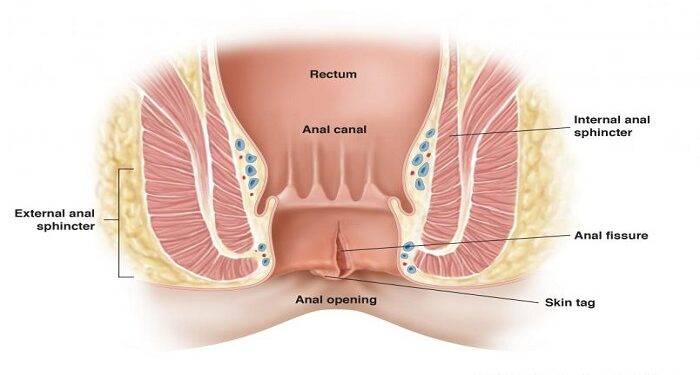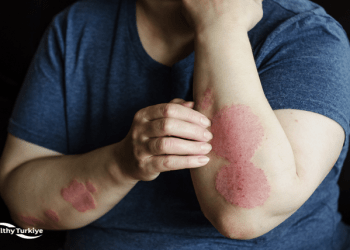An anal fissure refers to a cut or tear in your delicate, thin lining of the anus.
The muscle surrounding the anus is often exposed by the tear, known as the anal sphincter. This can cause the muscle to spasm which can further pull the edges of your fissure. Spasms can lead to pain and slow down healing. The fissures can be prevented from healing by bowel movements.
An anal fissure can be considered acute if it has occurred recently or it’s been less than six weeks. If it has been ongoing for more than six weeks, or if it returns frequently, it is considered chronic.
Who Gets Anal Fissures?
Although these tears are quite common, you may think that the bleeding and pain are signs of hemorrhoids or other medical conditions. Both men and women can experience them. They can also occur to babies.
They are more common in adults aged between 20-40. However, you can get them at any age. Your risk increases as you age.
Certain medical conditions such as:
- Anal cancer
- Leukemia
- STDs and HIV
- Other conditions such as Crohn’s and ulcerative colitis can cause complications.
What Causes Anal Fissures
These are caused by injury or trauma that causes damage to your anal canal. This can be caused by:
- Constipation or passing large or hard stools
- Explosive or ongoing diarrhea
- Childbirth
- Anal sex, or placing things in your anus, can cause a fissure and overstretch skin.
Poor blood supply to the anus and too much pressure can lead to poor healing and development. Anal fissures are not usually a sign of more serious issues. They are not considered to be cancerous. They can cause discomfort.
Home remedies for Anal Fissures
High-fiber diets can keep your stool regular and passable. This is an important factor in preventing future anal fissures.
Adults should consume 25 to 35 grams of fiber daily. It is important to consume plenty of fluids every day, in addition to a higher intake of dietary fiber. This softens stools and makes it easier to pass. It also promotes wound healing. Fiber supplements may be an option to boost your daily intake. Online purchase of a variety of fiber supplements is possible.
Pain Management
Anal fissures are often painful. The pain may be most severe when you pass stools. It can also last for a while.
Topical pain relief creams such as lidocaine creams can provide targeted relief. Anti-inflammatory pain relievers like ibuprofen may be more effective for general pain conditions. Regular warm baths can help relax the muscles of the anus and promote healing of fissures. You may feel less pain.













